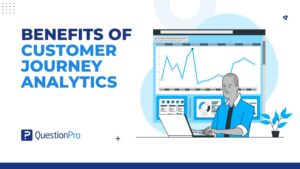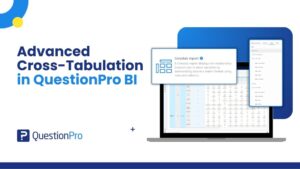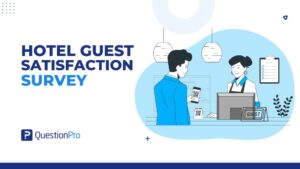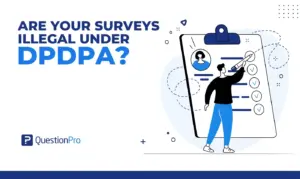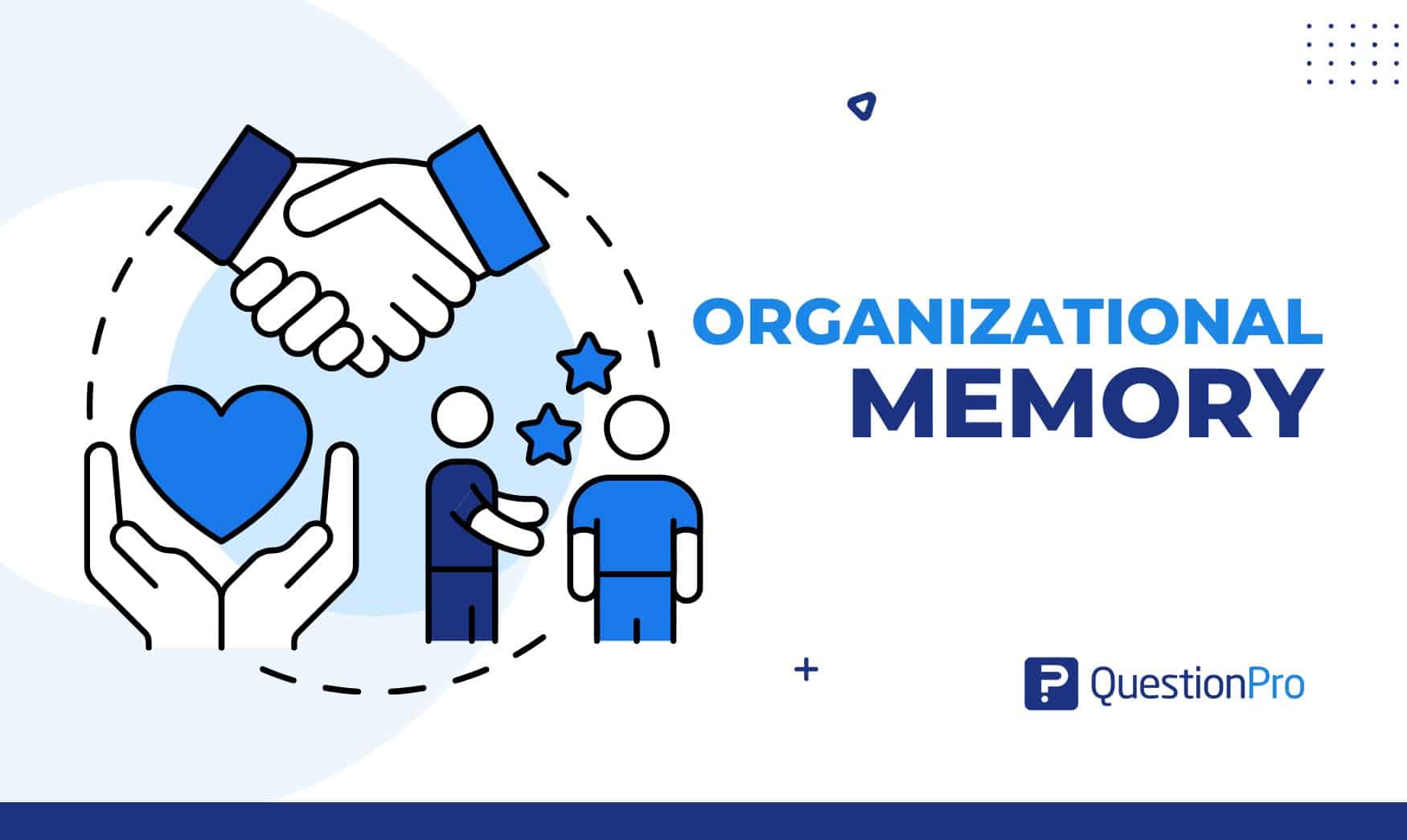
Organizational memory is vital in managing intellectual capital and enhancing overall organizational performance. By focusing on organization science and retrieving knowledge acquisition, companies can leverage embedded knowledge and experiential learning to improve their strategies.
Effective retrieval of stored knowledge and human memory systems are essential for preserving and utilizing this intellectual capital. Through these practices, organizations can ensure that valuable insights are recovered and are readily available to drive continuous improvement and innovation.
This blog will explore the key components of organizational memory, its benefits, and strategies to enhance it. We’ll also look at real-world examples of how leading companies use organizational memory to their advantage and discuss how tools like QuestionPro can help capture and preserve this invaluable resource.
What is Organizational Memory?
Organizational memory refers to the collective knowledge, experiences, processes, and practices an organization accumulates over time. It encompasses everything from documented procedures and historical data to unwritten norms and cultural values.
Organizational memory is a repository of valuable information that employees can access and utilize to inform decision-making, solve problems, and drive continuous improvement.
The organization’s “institutional memory” contains insights from past successes and failures that can guide future actions. It helps preserve the organization’s identity, maintain continuity, and facilitate organizational learning and adaptation in a rapidly changing business landscape.
Real-World Examples of Organizational Memory
Several companies leverage organizational memory to drive success:
- Toyota: Known for its Toyota Production System, Toyota uses its deep organizational memory to standardize processes and enhance efficiency through continuous learning.
- Google: Google promotes knowledge sharing and collaboration with internal tools, allowing teams to learn from past projects and avoid duplication of effort.
- Procter & Gamble (P&G): P&G uses its extensive history and consumer insights to guide product development and marketing strategies, aligning with market trends.
- NASA: NASA relies on detailed documentation and lessons from past missions to ensure safety and guide future space exploration endeavors.
Components of Organizational Memory
Organizational memory is a multifaceted construct that consists of various components. Understanding these components is essential for effectively managing and leveraging organizational memory. Here are the key components:
1. Tacit Knowledge:
Tacit knowledge is the implicit, unspoken knowledge in employees’ minds. It includes skills, insights, and intuitions gained through personal experience. Tacit knowledge is often challenging to articulate but plays a vital role in decision-making and problem-solving.
2. Explicit Knowledge
Explicit knowledge is documented and codified information available in written form, such as manuals, reports, databases, and guidelines. It is easily transferable and can be accessed by employees to support their tasks and responsibilities.
3. Cultural Norms and Values
Organizational culture comprises shared beliefs, values, and behaviors that shape how employees interact and work together. Cultural norms and values influence
- Decision-making processes,
- Communication styles and
- Employee engagement,
- Forming an integral part of organizational memory.
4. Processes and Practices
Established processes and practices represent the routines and methods proven effective over time. They provide a framework for executing tasks efficiently and maintaining consistency in operations.
5. Historical Data and Records
Historical data and records contain valuable insights into past performance, market trends, customer preferences, and industry dynamics. Analyzing historical data can inform strategic planning and help organizations anticipate future challenges.
6. Social Networks and Relationships
Informal networks and relationships among employees contribute to information and knowledge sharing. These networks facilitate collaboration, innovation, and the dissemination of organizational memory across different departments.
Importance of Organizational Memory
Organizational memory is a vital asset that can significantly impact an organization’s success and sustainability. Here are some reasons why organizational memory is crucial:
- Helps to Make Informed Decisions: Access to organizational memory allows employees to make informed decisions based on historical experiences, successes, and lessons learned from failures. This minimizes the risk of repeating mistakes and enhances decision-making quality.
- Increases Efficiency and Consistency: As part of organizational memory, established processes and practices enable employees to perform tasks efficiently and consistently. This leads to
- Improved productivity,
- Reduced errors and
- Enhanced customer satisfaction.
- Increases Innovation and Adaptation: Organizational memory fosters innovation by providing a foundation for creativity and experimentation. By building on past knowledge, organizations can adapt to
- Changing market conditions,
- Identifying emerging trends and
- Developing innovative solutions.
- Helps in Employee Onboarding and Training: Organizational memory plays a crucial role in onboarding new employees and training existing staff. By sharing knowledge and experiences, organizations can accelerate the learning curve and ensure a smooth transition for new hires.
- Helps in Preservation of Organizational Identity: Organizational memory helps preserve the organization’s identity, values, and culture, ensuring continuity even during leadership changes or workforce transitions. This stability fosters employee loyalty and strengthens the organization’s brand.
Strategies for Enhancing Organizational Memory
Organizations must implement strategies that enhance knowledge management review and promote knowledge sharing to maximize the benefits of organizational memory. Here are some effective strategies:
1. Knowledge Management System
Implementing robust knowledge management systems enables organizations to capture, store, and disseminate knowledge effectively. These systems facilitate access to
- Explicit knowledge,
- Historical data and
- Best practices.
2. Communities of Practice
Encouraging the formation of communities of practice allows employees to connect, collaborate, and share knowledge within specific areas of expertise. These communities create
- Learning,
- Innovation and
- Exchange of tacit knowledge.
3. Mentorship and Coaching
Establishing mentorship and coaching programs enables experienced employees to pass on their knowledge and skills to newer organizational members. This helps preserve organizational memory and ensures the transfer of critical insights.
4. Continuous Learning and Development
Promoting a culture of continuous learning and development encourages employees to acquire new skills and knowledge. Organizations can support this culture by providing
- Training programs,
- Workshops and
- Opportunities for skill enhancement.
5. Documenting Lessons Learned
Encouraging the documentation of lessons learned from projects and initiatives allows organizations to capture valuable insights and experiences. These documented lessons serve as a reference for future projects and decision-making.
6. Cross-Functional Collaboration
Creating cross-functional collaboration and knowledge sharing promotes exchanging ideas and experiences across different departments. This helps break down silos and enhances organizational memory.
The Role of Organizational Memory in Business Continuity
By maintaining a significant organizational memory, businesses can ensure stability, adapt to changes smoothly, and continue operations with minimal disruption. It plays a critical role in business continuity by:
- Knowledge Retention: Ensuring that essential organisational knowledge, skills, and processes are documented and preserved, reducing the impact of employee turnover or absence.
- Risk Management: Providing a repository of past experiences and lessons learned that can be used to anticipate and mitigate potential risks.
- Operational Efficiency: Streamlining processes and decision-making through access to historical data and established best practices support consistent and reliable operations.
- Crisis Management: Offering insights and strategies from previous crises that can be applied to navigate current challenges effectively.
- Training and Onboarding: Facilitating faster and more effective employee onboarding by providing new hires access to organizational knowledge and resources.
Benefits of Organizational Memory
Here are some bullet points outlining the benefits of organizational memory:
- Improved Decision-Making: Access to past experiences and knowledge allows organizations to make more informed decisions and avoid repeating mistakes.
- Increased Innovation: Building on existing knowledge creates creativity and innovation, leading to the development of new products and solutions.
- Enhanced Efficiency: This streamline processes by reducing redundancy and minimizing the time spent reinventing solutions, thus boosting productivity.
- Better Adaptability: Helps organizations quickly adapt to changes and navigate crises by learning from past experiences.
- Sustained Competitive Advantage: Offers insights and experiences that differentiate the organization from competitors, enabling sustained success.
- Knowledge Retention: Preserves valuable knowledge and expertise within the organization, preventing loss due to employee turnover.
- Cultural Continuity: Maintains and reinforces the organization’s core values, beliefs, and practices, supporting a cohesive work environment.
- Effective Problem-Solving: Utilizes historical data and experiences to solve current challenges efficiently and effectively.
Challenges in Managing Organizational Memory
While organizational memory offers numerous benefits, managing and leveraging it effectively can be challenging. Some common challenges include:
- Knowledge Silos: Knowledge silos occur when information is isolated within specific departments or teams, hindering cross-functional collaboration and knowledge sharing. Overcoming silos requires creating a culture of openness and promoting communication across the organization.
- Knowledge Loss: Knowledge loss can occur when employees leave the organization, taking their tacit knowledge with them. Organizations need strategies to capture and retain knowledge to prevent the loss of valuable insights and expertise.
- Information Overload: The abundance of information available within organizations can lead to information overload, making it difficult for employees to access relevant and actionable knowledge. Implementing efficient information management systems can help mitigate this challenge.
- Resistance to Change: Employees may resist changes to established processes and practices, especially if they perceive new approaches as threatening their routines.
Effective change management strategies are essential to overcome resistance and facilitate the adoption of new practices.
How QuestionPro Can Help in Collecting and Storing Organizational Memory
QuestionPro offers a range of tools that can significantly aid in collecting and storing organizational memory. Here’s how QuestionPro can help:
- Surveys and Feedback Tools: QuestionPro’s survey and feedback tools enable organizations to gather insights from employees, customers, and stakeholders, capturing valuable knowledge and experiences and contributing to it.
- Centralized Data Repositories: By storing collected data in a centralized platform, QuestionPro ensures easy access and retrieval of information, allowing organizations to build a cohesive knowledge base for decision-making and future reference.
- Employee Engagement Analytics: Advanced analytics tools help track employee engagement and satisfaction trends, providing insights that contribute to the organization’s collective memory and inform improvement strategies.
- Knowledge Sharing and Collaboration: QuestionPro’s collaboration features facilitate the sharing of insights and knowledge across teams and departments, breaking down silos and promoting a culture of continuous learning.
- Real-Time Reporting: The platform’s real-time reporting capabilities enable organizations to quickly analyze and interpret data, making it easier to leverage historical insights for informed decision-making and strategic planning.
- Customization and Integration: QuestionPro offers customizable surveys and integration with other tools. This ensures that organizations can tailor the data collection process to fit their needs and seamlessly integrate it into existing systems.
- Secure Data Management: With robust security measures, QuestionPro ensures the safe storage and handling of sensitive information, safeguarding the organization’s valuable knowledge assets.
- Continuous Feedback Loop: Implementing ongoing feedback loops with QuestionPro allows organizations to capture evolving insights and experiences, ensuring that it remains dynamic and up-to-date.
Conclusion
Organizational memory is a valuable asset that can significantly impact an organization’s success, innovation, and adaptability. By effectively managing and leveraging it, companies can make informed decisions, enhance efficiency, and create a culture of continuous learning.
To maximize the benefits of organizational memory, organizations must address challenges such as knowledge silos, knowledge loss, and information overload.
By implementing strategies that promote knowledge sharing, collaboration, and continuous learning, organizations can unlock the full potential of their organizational memory and sustain success in today’s dynamic business environment.
By utilizing QuestionPro’s versatile platform, organizations can efficiently collect, store, and leverage their organizational memory, leading to better decision-making, enhanced innovation, and sustained competitive advantage.




